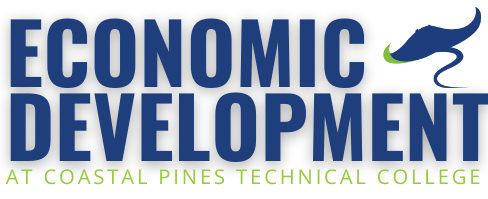0060 - Certified Clinical Medical Assistant (Ed2Go Programs)
Course Description
CLICK HERE TO REGISTER
Clinical medical assistants are skilled multitaskers who help maximize the healthcare team's productivity. Medical assistants enable a healthcare facility to operate more efficiently, which increases revenue and provides a positive experience for patients. For physicians, clinical medical assistants help manage the increasing complexities of practice management and patient care. According to the U.S. Bureau of Labor Statistics, the job market for medical assistants will grow 16% through 2031, which is much faster than the average job.
In this online medical assistant certification course, you will learn a broad range of skills that make medical assistants versatile and valuable, including medical terminology, medical law and ethics, HIPAA rules, scheduling systems, and the importance of certified clinical medical assistants as healthcare team members. You will also be prepared to perform duties from the front office to the back office. These duties include measuring vital signs, assisting with exams, performing laboratory testing, maintaining equipment and supplies, administering injections, obtaining blood specimens, scheduling appointments, registering patients, and answering and returning phone calls.
You will also learn medical terms and their application as part of your medical assistant training. You will start by learning the origins of medical words and how to recognize prefixes and suffixes used in medical terminology. Then you will learn about the body as a whole and how to differentiate cells, tissues, organs, systems, and cavities. Next, you will learn to define and describe the function of each system of the human body. This knowledge will help you take the next step in your medical career or education.
The online medical assistant certification course also includes the opportunity to become CPR certified and participate in an unpaid clinical experience. Because employers recognize that certified medical assistants deliver greater value, completing the course will help you to be well-prepared to find your place in this rewarding healthcare career. You will also be able to sit for the Certified Clinical Medical Assistant (CCMA) exam through the National Healthcareer Association (NHA).
This CCMA certification course includes a voucher covering the certification exam fee. However, please research your state's requirements by visiting your state's medical board site before enrolling to ensure this course is the right fit for you. Students intending to work in Washington state may be required to provide or request an official transcript from the school they are enrolled with to qualify for employment as a Medical Assistant – Certified.
The course also includes an opportunity to participate in a clinical experience.
What you will learn
- You will learn the necessary skills to function as a vital member of the healthcare team in an ambulatory setting
- The course will emphasize ethical behavior, therapeutic communication, protecting the privacy of patient information, the importance of a first impression, maintaining a safe office environment, medical terminology, and clinical procedures.
- Identify the professional traits that a medical assistant must possess
- Discuss the various administrative and clinical job duties of a medical assistant
- Recognize the importance of professional certification
How you will benefit
- Summarize the HIPAA Privacy Rule and HIPAA Security Rule
- Demonstrate basic medical terminology knowledge
- Discuss government and private insurance
- Identify the functions of the major body systems
- Demonstrate how to write a chief complaint and obtain a patient history
- Discuss the importance of medical and surgical asepsis
- Explain the information contained in different types of medical records.
- Identify the three methods used to perform venipuncture
- Professionalism represents the types of behavior that demonstrate your moral, ethical, and respectful attributes when interacting with patients and coworkers
- The medical assistant has a critical role in the ambulatory care setting, performing both administrative and clinical tasks under the direction of the provider
- An increasing number of employers now require that their medical assistants be certified. Certification shows that the medical assistant has met certain educational requirements and has committed to continuing their education going forward
Syllabus
- Medical Terminology
- Introduction to Medical Terminology
- The Musculoskeletal System
- The Cardiovascular System
- The Lymphatic and Immune Systems
- The Respiratory System
- The Digestive System
- The Urinary System
- The Nervous System
- The Special Senses The Eyes and Ears
- The Integumentary System
- The Endocrine System
- The Reproductive System
- Diagnostic Procedures, Nuclear Medicine, Pharmacology
- Certified Clinical Medical Assistant
- Medical Assisting Foundations
- Professional Behavior
- Legal and Ethical Issues
- The Art of Communicating
- Telecommunications, Telephone Professionalism, and Telephone Techniques
- Written Communications
- Medical Office Environment
- Patient Scheduling
- Managing Medical Records
- Introduction to Health Insurance
- Medical Coding: An Overview
- Patient Accounts
- Insurance Claims, Patient Billing, and Collections
- Daily Financial Practices
- Managing the Office
- Pharmacology
- Pathophysiology
- Infection Control and Medical Asepsis
- The Chief Complaint and Patient History
- Body Measurements and Vital Signs
- Preparing for Examinations
- The Complete Physical Examination (CPE)
- Specialty Examinations and Procedures
- The Physician's Office Laboratory (POL)
- Specimen Collection and Processing
- Introduction to Phlebotomy
- Diagnostic Testing
- Minor Office Surgeries
- Medication Dosage Calculations
- Administering Medications
- Emergencies in the Medical Office
- First Aid Procedures and Mental Health Issues
- Rehabilitation
- Nutrition and Special Diets
- Certification
- Preparing for Your Career

